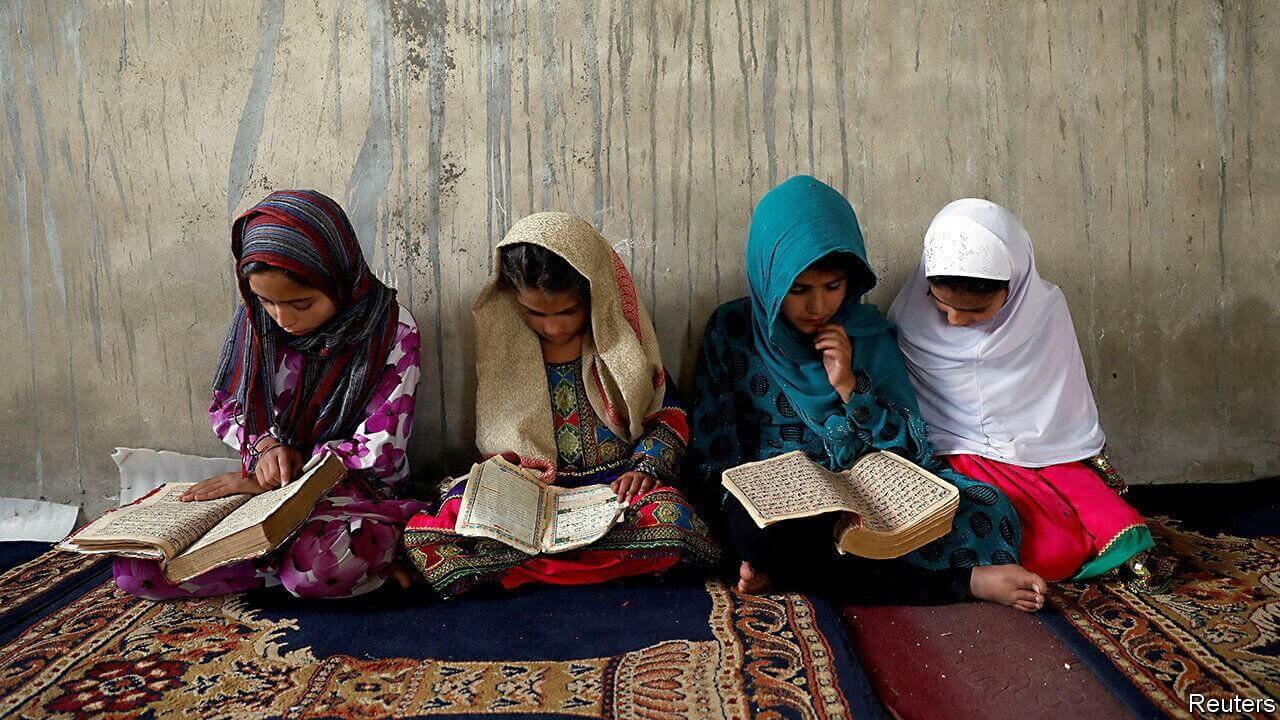Senior Taliban representative Anas Haqqani said at a gathering in the southeastern province of Khost on Wednesday that an assembly of clerics will soon be held to solve the problem related to girls’ education, referring to the recent ban on girls attending high school.
The international community has long been demanding that the group not discriminate against women and allow them to continue working and attend school. Various countries and international organisations have also stressed that any move to recognise the Taliban would depend on the group fulfilling these demands.
In this regard, Haqqani said: “You will hear good news. It will make everyone happy. We should understand that the foreigners are undermining us in this regard. A lot of people have been disappointed. And they have the right to be disappointed. It was a major (issue) for the people.” He added that the forthcoming assembly will be attended by religious clerics, intellectuals, and experts.
Yesterday’s sports event in Khost in which governor of Khost, Mawlawi Muhammad Nabi Omari, Anas Haqqani & other officials participated to encourage the youth & athletes in their healthy activities & to promote sports in the province. Despite challenges our youth are working hard. pic.twitter.com/UfDLcmyo4D
— Muhammad Jalal (@MJalal313) May 3, 2022
Without naming any groups or individuals, Haqqani said that instead of fighting and “bloodshed,” the issue must be dealt with through peaceful discussions. “I request that if a problem is solved via negotiations behind the curtain with (brothers), we should not be brought into the need for force and bloodshed,” he said.
The gathering in Khost was attended by other members of the current Afghan government. “There is a chance this time. If we lose this chance, we will face misery,” said Shafay Azam, a senior official in the Ministry of Foreign Affairs.
One of the Taliban’s key promises following its seizure of power last August was to allow girls to attend schools. The group had promised that girls will continue to have access to education and that the leadership would make sure that all of its fighters abide by this policy.
However, on March 23, it announced that it would not allow girls to attend high school, days after promising the opposite. In fact, the abrupt decision was made as hundreds of girls returned to schools across Afghanistan after seven-month hiatus but were later told to go home.
Anas Haqqani, senior member of the IEA:
— KABUL NEWS (@kabulnewstv) May 4, 2022
Afghan people will soon hear good news about the solution to the problem of girls' schools closure. pic.twitter.com/bjUopAbhIr
A notice released by the Afghan Taliban’s Education Ministry reasoned that while the Taliban is committed to ensuring the educational rights of all Afghans, these rights must be within the framework of the Islamic Sharia law. In this respect, the Ministry said that girls in sixth grade and above will not be allowed to attend school. At the same time, it also stated that boys of all ages can continue their education and that a final decision regarding allowing girls to pursue higher education will be made soon.
The Taliban’s Doha spokesperson, Suhail Shaheen, had said the move was only meant to postpone the opening of girls’ schools and not indefinitely bar girls from education. Shaheen claimed that a technical issue regarding the standardisation of uniforms for all students was preventing Education Ministry from allowing girls beyond the sixth grade to attend classes.
The last time the Taliban was in power in Afghanistan, from 1996 to 2001, they banned education and employment for girls guided by an extremist understanding of Islam. Girls were also brutally punished if they were found violating the group’s diktats. As a result, women’s literacy rate during the period plummeted to one of the lowest in the world—13% in urban areas and 4% in rural areas.
Apart from education, the Taliban has banned women from boarding flights unless they are accompanied by a male relative. It has also mandated that all female journalists wear hijabs. Furthermore, the Vice Ministry has banned a directive banning women from visiting parks in Kabul on the same days as men, saying, “It is not the Islamic Emirate’s order, but our God’s order that men and women who are strangers to each other should not gather at one place.” Likewise, just this week, it emerged that the Taliban is no longer issuing driving licenses to women.
If these changes are any indication, then it seems all but certain that the Taliban has little intention of meeting international demands to protect the rights of girls and women, across all spheres of society.

